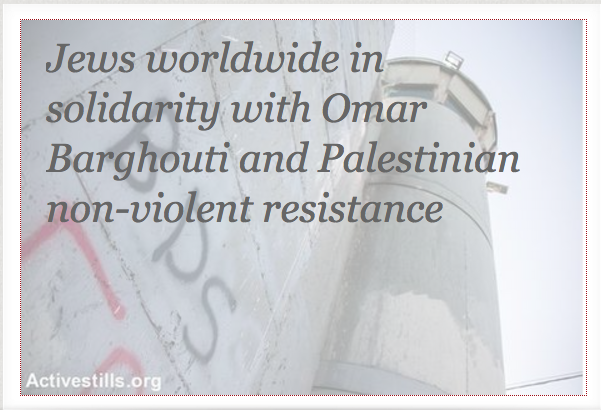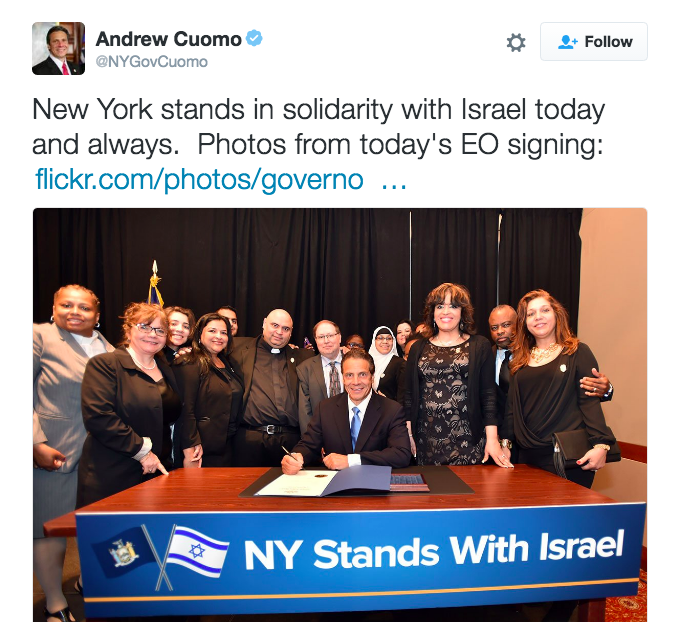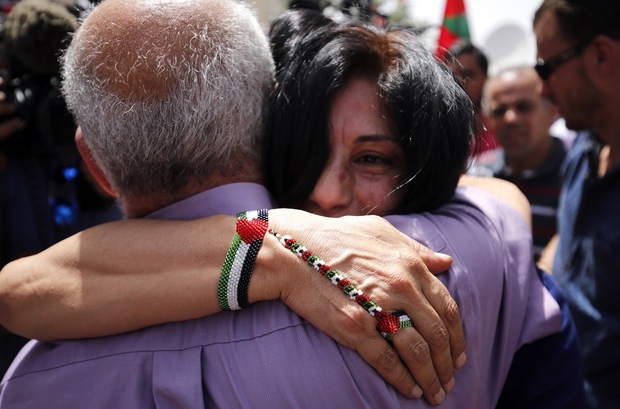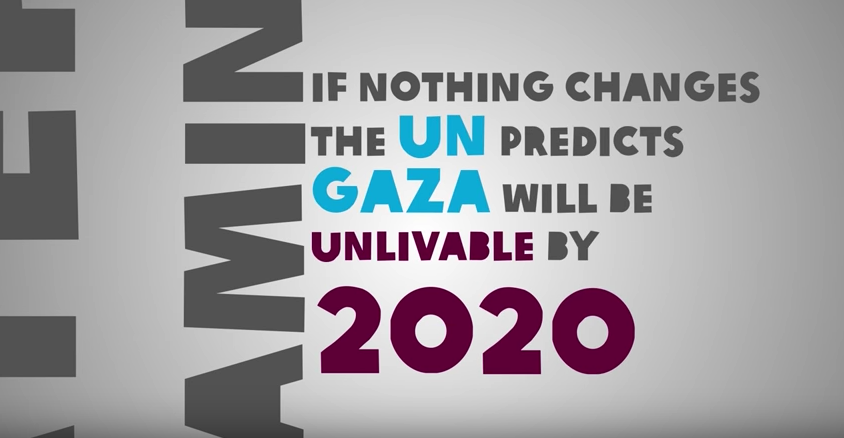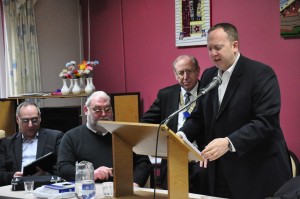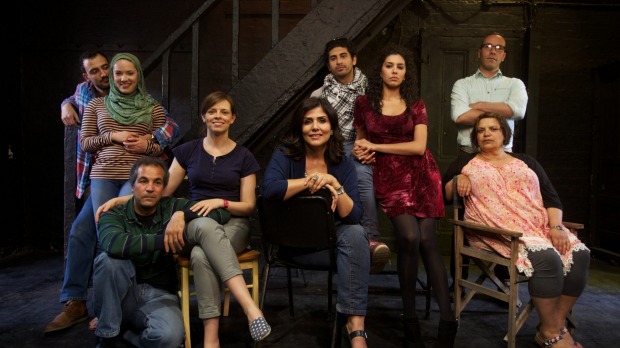On 31 May, the Israeli mission to the UN and the World Jewish Congress hosted the first international #StopBDS conference at the United Nations headquarters in New York. Reporting on the event for Electronic Intidada, Rania Khalek cites the contribution of the British/Israeli World Union of Jewish Students Chairperson, Yosef Tarshish, a former president of Union of Jewish Students in the UK:
an estimated 1,500 people, many of them college aged, attended the summit to learn and discuss strategies for crushing the Palestinian-led boycott, divestment and sanctions movement burgeoning on US college campuses. […] Yosef Tarshish, chairperson of the World Union of Jewish Students, called for Zionist groups to incorporate intersectionality into their advocacy.
“Intersectionality is the theory of interrelated forms of oppression,” Tarshish told the audience. “A lot of anti-Israel organizations have managed to infiltrate this conversation.”
“We need to remind students around the world that they need to stand with us because we will stand with them when their rights are trampled,” he said, adding that “Jewish students need to speak the language of the left.”
That BDS is modeled on those very movements was completely lost on conference participants. More importantly, so is the fact that appealing to the left will be a near impossible task for the anti-BDS effort. Its base is inherently right-wing and supports a blatantly racist regime led by far right nationalists and proto-fascists committed to denying basic human rights to Palestinians, stealing their land, demolishing their homes and corralling them into walled-off ghettos.
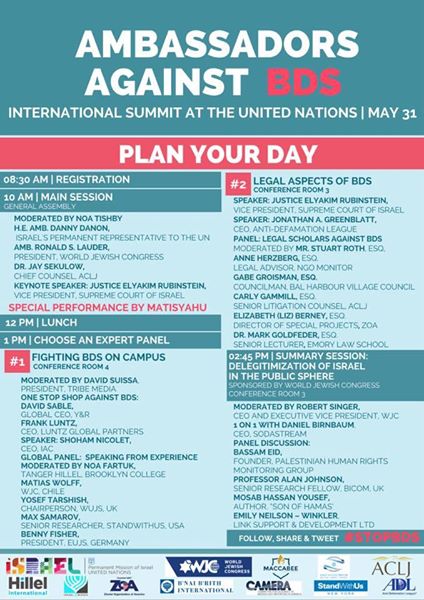
The impossibility of this task in the UK is best illustrated by the controversial election of Malia Bouattia as NUS president in April.
Incensed by her popular candidacy, university Jewish Societies (JSocs) mobilised to try to block Bouttia who was to become the first female, black, Muslim president. The Union of Jewish Students, which represents its membership through JSocs, is a member of the World Union of Jewish Students, which in turn is an affiliated member of the World Zionist Organization: a major conduit of funds to the illegal settlements. In the lead up to the NUS conference – in an attempt to smear her as an antisemite and ISIS supporter – dozens of JSoc presidents published two open letters demanding she explain her anti-Zionist, progressive politics.
Ultimately unsuccessful in their attempt to stop Bouattia, Zionist students have continued to weaponise antisemitism when arguing both for and against disaffiliation from the NUS. Some in the “Yes to NUS” camp have revealed the extent to which Zionists have hijacked an independent review into whether the NUS is institutionally racist. The review was launched last year in response to claims that were made at a meeting of the national executive committee by Malia Bouattia, then NUS Black Students’ Officer. It is an audit of “direct or indirect racism within [the] NUS’s culture, systems, policies, processes and structures.” The criticism is that universities are “white, male and stale” environments, and employ few black female professors. The idea that our universities are institutionally antisemitic is simply not borne out by the facts.
This week, Oxford University Student union voted to stay, in what became a toxic campaign: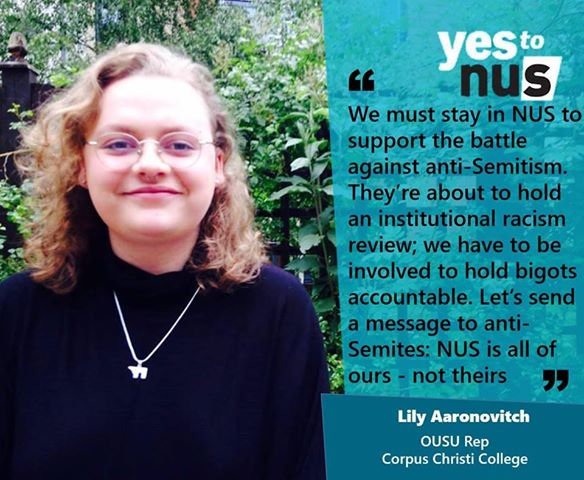
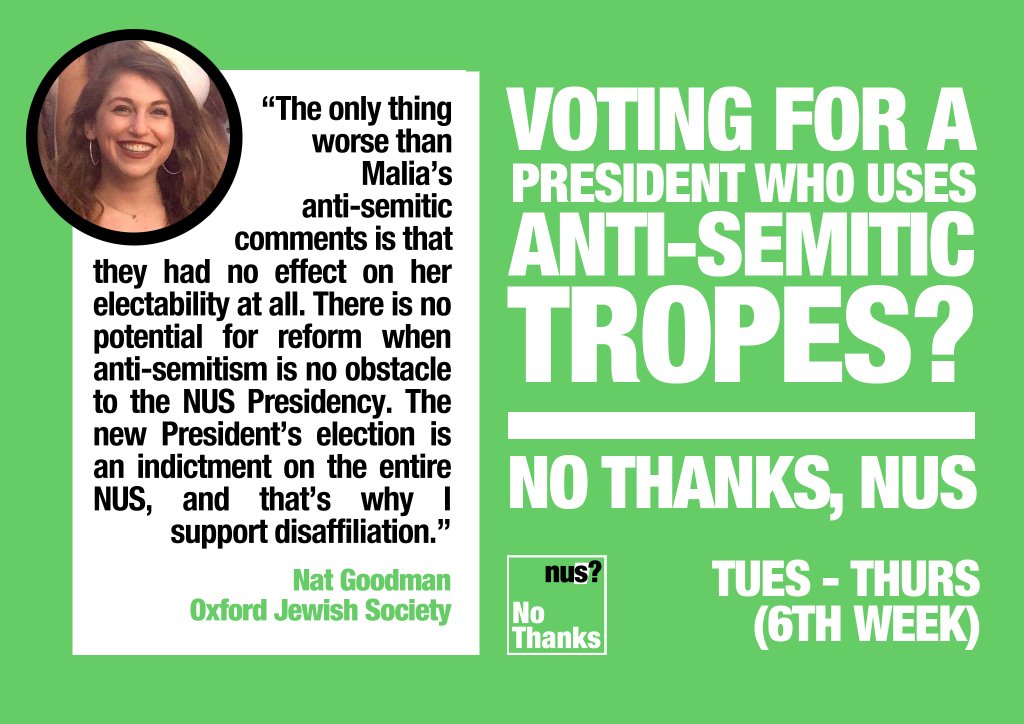
In her May 24 column for the Jewish Chronicle on Cambridge University’s own affiliation referendum, entitled ‘No one should have to compromise religion for politics – but the NUS elections made me doubt myself,‘ Noa Gendler makes no explicit reference to Bouattia, but is otherwise extraordinarily frank:
there’s no way I can decide whether or not [Cambridge University Students Union] should disaffiliate from the NUS without my Judaism coming into play. I’ve had to ask myself whether the NUS can offer me, as a Jewish student, representation and equality, and I’ve had to ask myself if its support for other minority students is more important than its support for me, as a Jewish student. Essentially, I’ve been forced to choose between two fundamental aspects of my life and values: being Jewish, versus liberation and equal opportunities for all minorities.
Commenting on Gendler’s article, Robert Cohen wrote that,
Our Jewish students can’t work out why their minority rights (when defined in terms of supporting Zionism) aren’t considered valid in the same way as other groups’ desires for self-determination.[…] I’d recommend Jewish students struggling to understand why NUS President Malia Bouattia has a problem with their “liberation movement” to also consider the information available to all of us in 2016.[…] How can I support a “national liberation movement” that has to force out and then institutionally discriminate against an indigenous people in order to establish its ambition? How can I support a “national liberation movement” that describes children born to an indigenous people as a “demographic threat” to its well-being? […] If Britain’s Jewish students could grasp all of this then the conflict between their Jewish identity and protecting other people’s rights would fall away. Being Jewish and protecting minority rights could all be part of the same thing.
The UN conference participants were given a booklet in English, entitled “Build Bridges not Boycotts: A Guide for combatting modern-day anti-Semitism,” containing new directives for Hasbara [propaganda] on campuses: It includes the cynical instruction to recite “Israel wants peace,” show empathy towards Arabs and befriend minorities.
In a section worthy of Orwell, the guide suggests that whenever they speak about nuclear-superpower, military occupier and coloniser Israel, “every other word out of your mouth should be ‘peace’. Every action Israel takes is dedicated to attaining ”peace’, and the creation conditions for ‘peace’. ‘Peace, peace, peace.'” Continue reading “Zionist students told to “speak the language of the left” at anti-BDS conference in UN”

